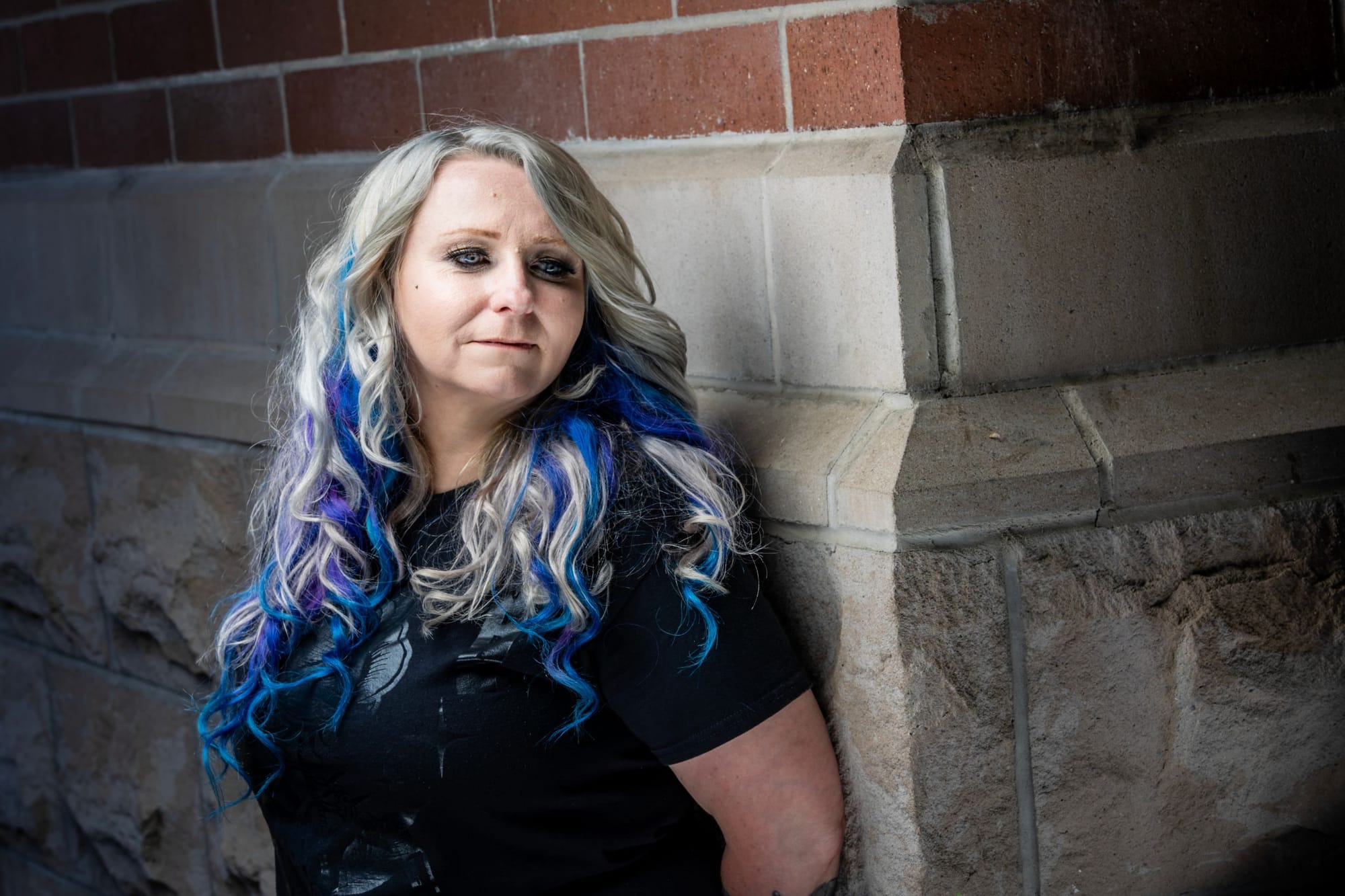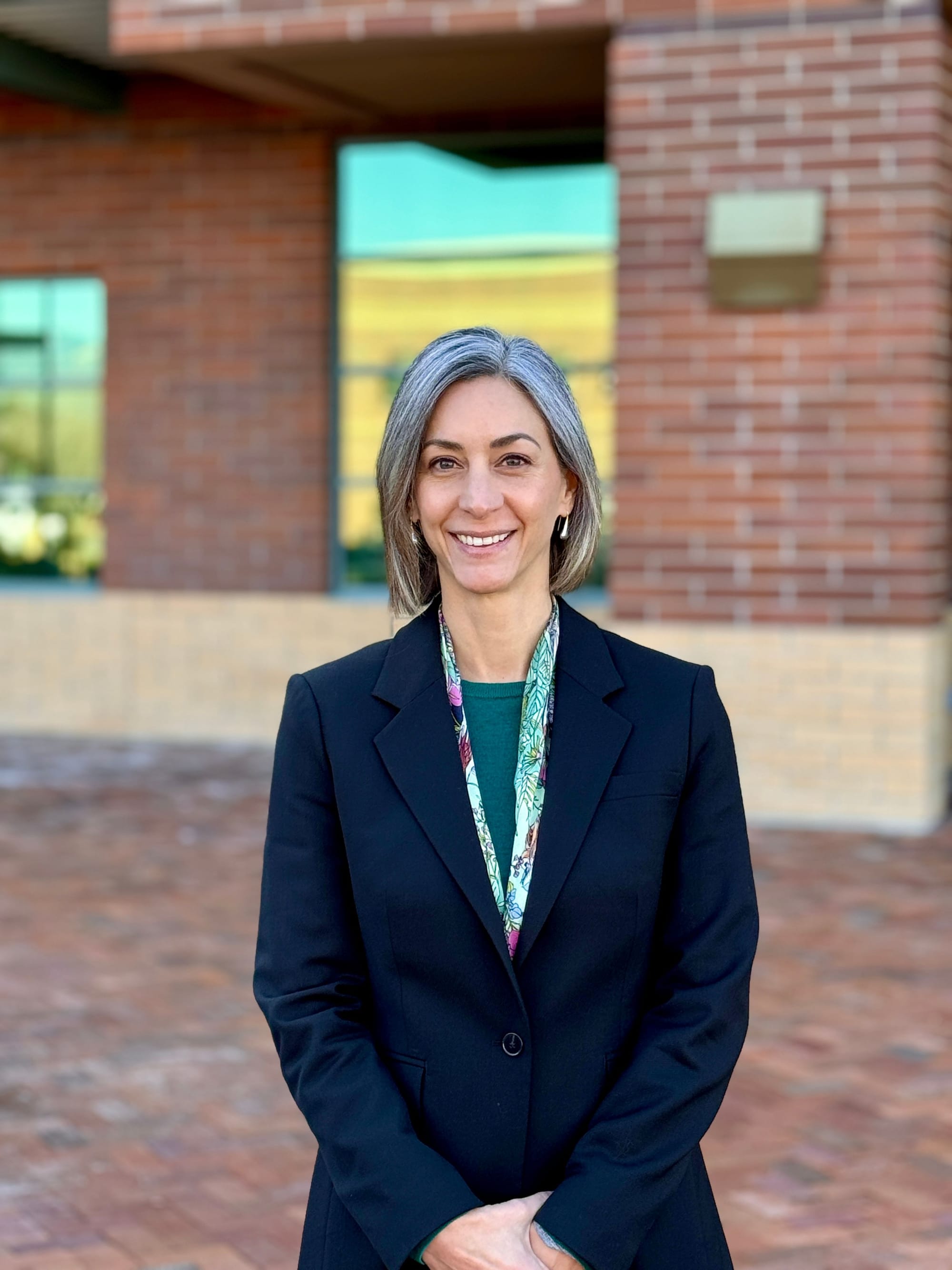Two Colville women were booked into a rural Washington jail. It became a death sentence
Critics say WA jails are letting opioid users suffer from withdrawals, leading to preventable deaths
InvestigateWest reporters uncovered years of sexual abuse by women’s prison guards prompting calls for independent investigation

Calls for reform are mounting after revelations of widespread sexual abuse inside Idaho women’s prisons as state officials, lawmakers and advocates demand accountability from the Department of Correction.
In a letter to Gov. Brad Little, the Southwest Idaho Chapter of the National Organization for Women condemned the state’s “shameful” failure to protect incarcerated women from sexual abuse and harassment by prison staff. Prompted by InvestigateWest’s reporting published last month, the group urged Little to order an independent investigation into complaints uncovered by reporters.
“It is shameful that the state has allowed abuse to continue for years without acting and has refused to release documents to the media.”
The letter urges Little and Correction Director Bree Derrick to “immediately ensure the safety of the women in its custody” and calls for stricter background checks and stronger accountability for abusive staff.
InvestigateWest’s yearlong investigation found rampant sexual abuse of women by prison staff in the state that incarcerates women at the nation’s highest rate. More than two dozen of those women said that correction officers preyed on them often in areas without security cameras — like closets, work sites or break rooms — with little fear of consequences. Those who spoke up were often punished with more restrictive confinement or other discipline. Of the nearly 37 workers identified by InvestigateWest who were accused of abuse in the past decade — a likely undercount — 18 resigned shortly after the incident occurred or a report was made. Eight were fired, and only one received a prison sentence, though he avoided prison through a plea deal.
The state prison system responded to InvestigateWest’s findings in a statement that highlighted department policies meant to protect people behind bars from sexual abuse — policies that reporters found are not being enforced.
“IDOC has a zero-tolerance policy regarding the sexual harassment and abuse of any incarcerated individual, and as part of that policy, every single allegation that surfaces is investigated,” the statement said in part.
It also pointed to federal audits that deem all state prisons are in compliance with federal Prison Rape Elimination Act standards.
However, a review of those audits by InvestigateWest found that auditors recorded discrepancies such as the failure to criminally investigate some abuse allegations, but passed the women’s prisons anyway with no violations.
Director Derrick and the department’s public information officer have not responded to questions from InvestigateWest about what is being done to improve the safety of women in custody and ensure sexual abuse is properly investigated, though the spokesperson said a review by the Board of Correction of policies and abuse complaints will “inform the next steps.”

Linda McFarlane, director of Just Detention International, a nonprofit dedicated to ending sexual abuse behind bars, called the news organization’s findings “horrifying” and called for a “reckoning” of the state’s prison system.
“What’s next has to be a formal assessment of what went wrong, where, why and how,” McFarlane said. “And I think this could be an opportunity for Idaho to rethink how Corrections is done, maybe starting in the women's facilities.”
A statement from Gov. Little’s office calls “transparency and the public’s confidence in state government” top priorities. In response to InvestigateWest’s findings, “Governor Little has asked the Board of Correction to review the cases in question as well as the Idaho Department of Correction’s public records request response processes to determine if any further action or improvements are needed within the department.”
A spokesperson from Little’s office said he had not yet received the letter mailed last week by the National Organization for Women.

State Rep. Marco Erickson, R-Idaho Falls, said sexual abuse by women’s prison workers is “a brand new issue for me,” but he’s committed to improving prison policies and state law to protect inmates.
Erickson said the loopholes in Idaho’s felony rape law meant to protect inmates are “unacceptable.” Federal standards say all inappropriate touching by prison workers and even suggestive comments or voyeurism are illegal. But Idaho’s law only protects inmates from assaults that involve contact with a person’s genitals, making it difficult for prosecutors to hold correction officers accountable for sexual abuse even when a guard seemingly confesses to the crime. The law “needs to be clearly defined,” Erickson said.
“I know my colleagues on the Judiciary and Rules Committee are highly committed to stopping this kind of stuff, so I think the support is there,” Erickson said. “We just need to work on where, and what are the steps.”
Lawmakers could commission a review of the prison system by Idaho’s Office of Performance Evaluation, which assesses how well government agencies or programs are operating and recommends improvements. Any legislator can propose an evaluation before they are chosen by a committee of four Democratic and four Republican lawmakers.
Ryan Langrill, director of the Office of Performance Evaluation, said based on InvestigateWest’s findings his office could study how accessible abuse reporting and anti-retaliation protections are to inmates or the availability of victim services. It could compare Department of Correction practices for investigating complaints with the federal Prison Rape Elimination Act standards. It could also assess how Idaho prison policies compare to other states and “whether those policies are implemented with fidelity,” he said.
“OPE stands ready to help any interested legislator refine a scope and timeline for the Oversight Committee’s consideration,” Langrill said. The eight-legislator committee typically directs Langrill’s office to perform four to six evaluations per year and is expected to select the next round in March.

Melissa Davlin, president of the Idaho Press Club, expressed concern over the lack of transparency from state and local agencies, which withheld documents about sexual abuse allegations against prison staff from reporters who made more than 100 public records requests.
The Department of Correction couldn’t find or withheld dozens of reports of sexual misconduct against its staff from InvestigateWest. The Idaho State Police provided some audio recordings and case files requested by reporters but withheld photo and video evidence, citing technical difficulties. An administrative assistant who was reviewing the audio files requested by the news organization told one reporter that “the thought that it might go out in the world makes me sick.”
“Failing to release those records raises serious legal and ethical concerns,” Davlin said in a statement. “Idaho's public records law doesn't allow agencies to withhold documents simply because information in those records might make people uncomfortable.”
The Ada County Sheriff’s Office — once responsible for investigating most sexual abuse allegations in Idaho’s prisons — demanded more than $5,000 for those records and refused to help reporters narrow their request or waive fees, claiming it was “unclear” how abuse by publicly employed prison guards served the public interest. After reporters requested police reports on a single guard who was convicted of raping an inmate under his supervision, the sheriff’s office released heavily redacted reports that hid descriptions of the alleged crimes even as victims’ names and medical details remained exposed.
Davlin called it “deeply concerning that the sheriff's office declined to work with reporters to narrow requests to reduce fees. Public records belong to the public.”
Though the Department of Correction has said little publicly about reform efforts, Derrick, the director of the prison system, responded directly to Andrea Weiskircher, who alleged abuse by five prison workers.
“As an agency, we can always improve,” Derrick wrote in an email to Weiskircher, one day after a story published containing the allegations, “and if you have specific recommendations that you’d like to suggest, I’d welcome them.”

Weiskircher was the first of seven women who reported sexual abuse violations against prison staff in summer 2024. Four of those women’s claims were never investigated by police. Idaho State Police opened an investigation into the other three. But detectives ignored leads, disregarded evidence and questioned only one of seven men accused of abuse before closing all three cases due to a lack of evidence. Weiskircher’s allegations were marked as “unfounded” or “determined not to have occurred” though records show a detective misrepresented Weiskircher’s testimony in a case file. The detective wrote that Weiskircher told him she never had any sexual contact with prison guards, but an audio recording of the interview, obtained by InvestigateWest, shows otherwise. She is out on parole and participating in drug court.
Since InvestigateWest began looking into Weiskircher’s claims, Idaho State Police have launched an internal affairs investigation into at least one of the detectives assigned to her case, Weiskircher and her attorney told a reporter after they met with a state police lieutenant. After her story was published, a parole supervisor emailed Weiskircher a list of resources for victims of sexual assault. And the police investigation into her claims is under review at the Idaho Attorney General’s Office, according to an email from the parole supervisor.
Idaho State Police did not respond to questions about the investigation into the detective, whether any disciplinary action has been taken or whether any other reforms are being discussed in light of InvestigateWest’s reports.
Wanda Bertram, a spokeswoman for the Prison Policy Initiative, which studies mass incarceration across the U.S. and advocates to reduce it, called InvestigateWest’s reporting “shocking but not surprising.”
Idaho incarcerates more women per capita than any other state, most of whom are locked up for nonviolent crimes such as drug possession, according to an Idaho Justice Project report. Bertram said while it’s clear that the Idaho prisons need to improve sexual assault prevention and response, reducing the number of women behind bars would drastically lower or eliminate the risk of abuse for many Idaho woman.
The investigation found several prison guards were allowed to resign after a report was filed against them. Many of those complaints weren't fully investigated and never appeared on their employment records. Police often failed to properly investigate complaints, and in the rare instances in which someone was charged, prosecutors have offered them plea deals that reduce charges or allow a perpetrator to avoid prison.
“The system has been very creative about finding ways to off-ramp people who are accused of abuse, but often claims that it is impossible to innovate in those same ways for people who have committed low-level crimes,” Bertram said.
If you value this type of reporting, help us continue producing high-impact investigations that drive real-world change.
Yes, I support local news!Idaho was once a national leader in adopting policies to prevent and respond to prison rape, said Lorie Brisbin, who led the state’s reform efforts in the 2000s even before the federal standards were solidified. Brisbin was Idaho’s first Prison Rape Elimination Act coordinator, working for the Department of Correction where she ensured state correction facilities complied with the standards and designed training for staff and inmates on what constitutes sexual abuse and how to report it. She left Idaho to work for the National Institute of Corrections and is now a consultant.
She said it is clear from InvestigateWest’s findings that those policies are no longer being prioritized and enforced in Idaho.
“The whole thing about the PREA standards was they were meant to encourage people to do the right thing,” Brisbin said. “And clearly (the Idaho Department of Correction) has chosen, in many cases, to do exactly the wrong thing. I want to come back there and clean house.”
Brisbin said reform needs to start with training correction officers and investigators to believe the women who are reporting these abuses. Incarcerated women are often seen as untrustworthy criminals even when they are a victim, she said.
“When you don't start from that premise of ‘what you're telling me is potentially true, and I really need to take it seriously,’ then you don't have any chance of getting it right,” Brisbin said.
That type of culture change must come from the top down, she said, starting with the prison system director, Derrick.
“It's not enough to just say it,” Brisbin said. “You have to hold people accountable.”
This reporting was supported by the Fund for Investigative Journalism and the Pulitzer Center.
The story you just read is only possible because readers like you support our mission to uncover truths that matter. If you value this reporting, help us continue producing high-impact investigations that drive real-world change. Your donation today ensures we can keep asking tough questions and bringing critical issues to light. Join us — because fearless, independent journalism depends on you!
— Jacob H. Fries, executive director
DonateCancel anytime.
Subscribe to our weekly newsletters and never miss an investigation.